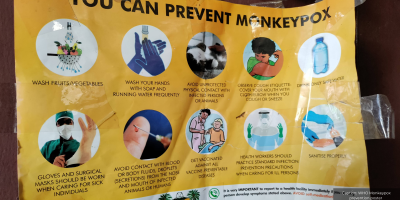In 2014, my wife, children, and I fled to the safety of Khartoum, Sudan, when the South Sudanese government and rebels fought over our hometowns of Leer and Bentiu in South Sudan. Armed conflict had started when the South Sudanese army divided, but people were quickly mobilised through discourses of revenge. As fighting spread, our home cities were engulfed in gunfire and shelling. We hid beneath beds and feared to leave our homes. Eventually, we took the dangerous journey to flee north to Sudan. I remember being welcomed at the border by Sudanese who were providing food and transport to South Sudanese people as we fled. We fled up to the safety of Khartoum. Hundreds of thousands of other South Sudanese settled in refugee camps in Sudan to stay safe. In April 2023, I found myself fleeing again, now back south from Khartoum as the Sudanese government and Rapid Support Forces (RSF) started fighting for control of Khartoum.
Living in the middle of a conflict
When the Sudanese government and RSF started fighting in Khartoum, we were living in the middle of the heat of the battle as our home was just a ten-minute walk from the military headquarters. When the RSF captured Khartoum city, we stayed in our home for six days as the RSF surrounded the area and were moving with heavy weapons. We kept our doors closed; there was no water or electricity in the house, as in many suburbs of Khartoum. There were no shops open – everything was closed. We concentrated on rationing the little things we had so that we could survive. My children were panicking as they heard heavy artillery and air strikes. They were too young to remember the fighting in South Sudan in 2014, but now they learnt of the dangers of guns and urban warfare. Our neighbour’s house, like ours, was small and made of flimsy material. As street battles continued, a stray bullet went through the wall of their house, hitting their eight-year-old daughter and killing her on the spot. I was constantly praying for help – I knew I had to get my family out to safety.
We heard on the news that the British government was evacuating British people out of Sudan to safety. Having once read about the UK government’s plans to deport people from the UK to Rwanda, as shells flew overhead, I couldn’t help but wish that the UK could have flown my children and I to Rwanda. We had no money for flights. We had no car. We did not even have money for a bus. We were stuck as gunfire and shelling continued.
Fleeing to safety, again
In the end, it was our Sudanese neighbours, who were members of the resistance committees, that got us out of Khartoum. They came to our door and asked if we wanted a lift in a car to the bus station. When I said we did not even have money for a bus, they gave us this money too. Finally, we escaped Khartoum in a bus crammed full of other Sudanese people.
We initially fled to Jebel Aulia, to the south of Khartoum. Many people had fled there. We put up some old poles and a sheet as a temporary shelter. Yet, within a couple of days, tensions were growing in Jebel Aulia too. Fighting was starting and we needed to get out. We decided to flee south through to South Sudan. Yet, we had not previously returned to South Sudan as we were not convinced it was safe for us after the decade of war in South Sudan had empowered the South Sudanese government and seen the decline of the leadership of Riek Machar. As Riek Machar was from my hometown, I feared that people would assume my sympathy for him, and that might make my family and I unsafe. I was desperate to find a quiet place to live. Yet, for now, we needed to go south and to South Sudan. To get to South Sudan cost a fee of USD 350-USD 400. This fee was payment to travel standing up on the back of a truck squeezed full of a hundred people. South Sudanese people are pouring back into South Sudan, with the richest or most connected going first on these expensive trucks.
For most South Sudanese people in Sudan, our journey back to South Sudan is a story of cyclical fleeing away from war and to safety, and backwards and forwards over the same border. The whole region has long histories of protracted, cyclical movements across national borders as people seek safety. However, all I crave is a quiet place to make a home for my children.




